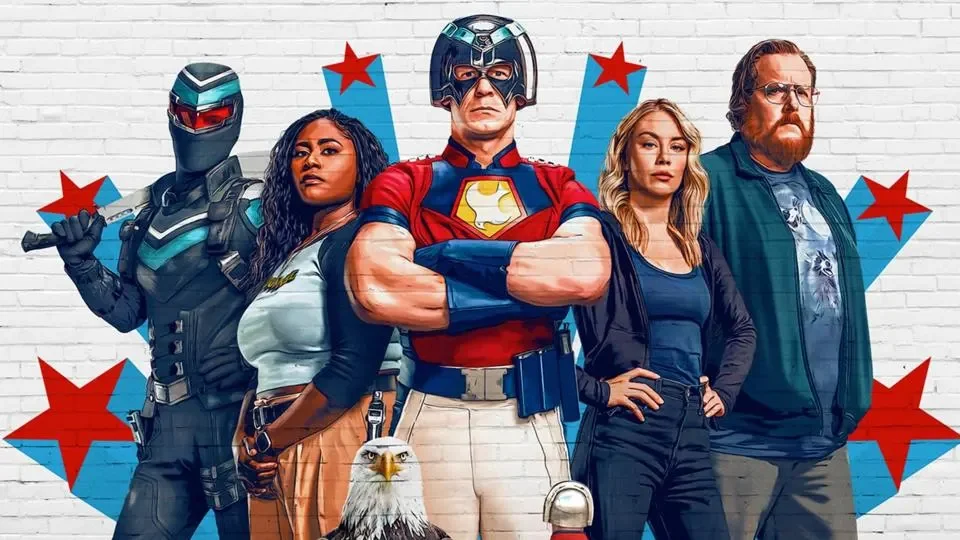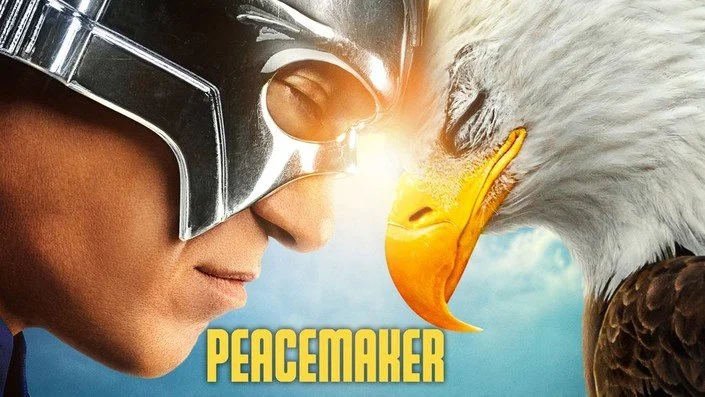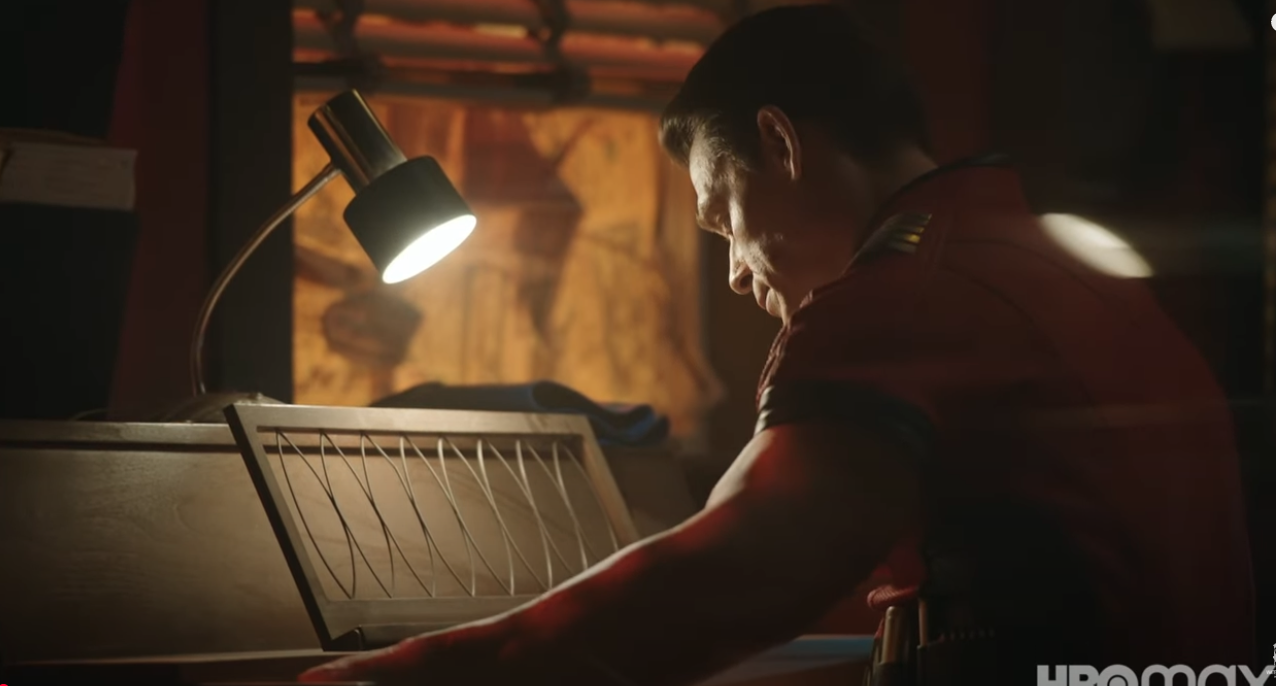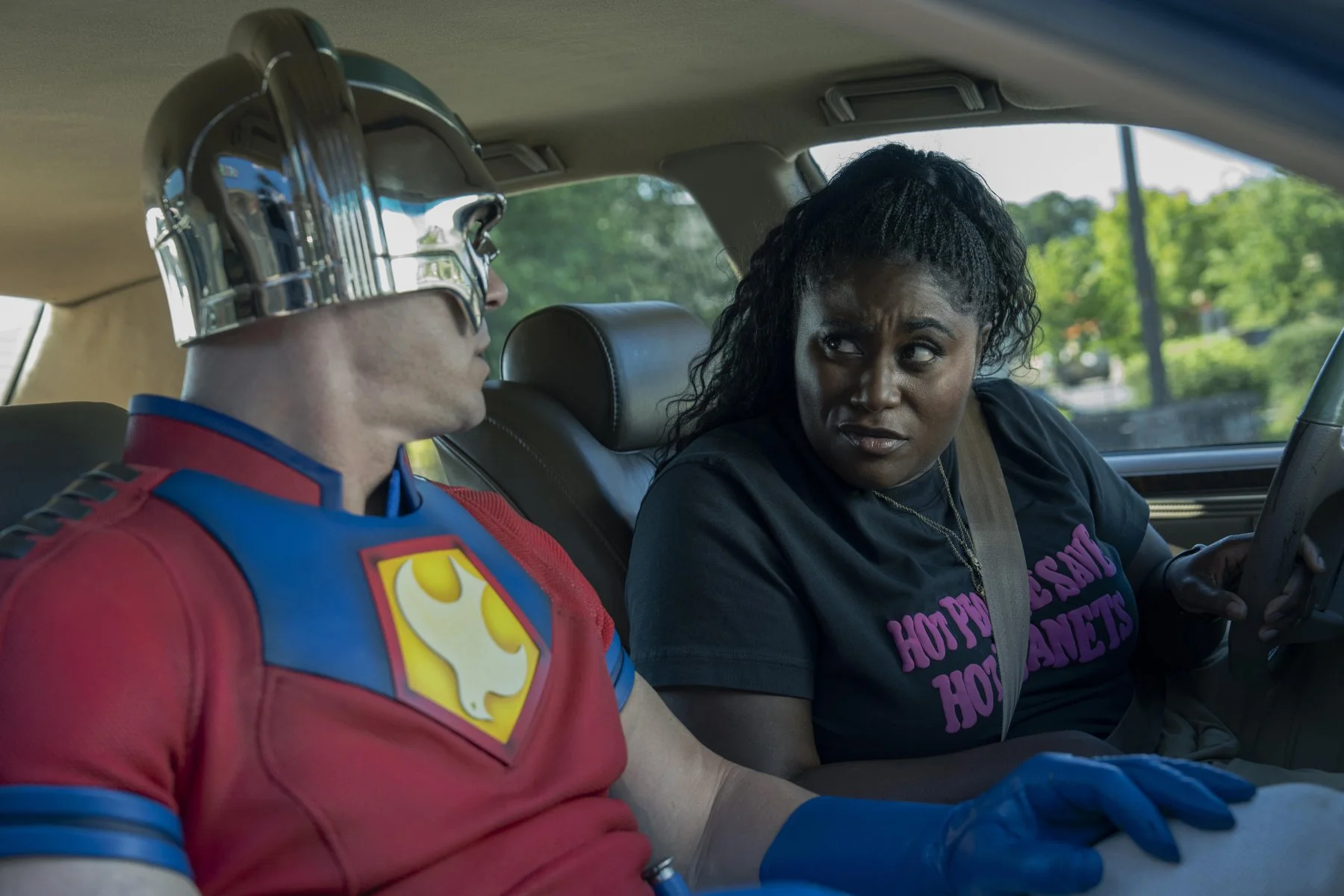Peacemaker: A Superhero’s Struggle as a Mirror for Men Today
Characters from Peacemaker: Vigilante, Adebeyo, Eagly, Peacemaker, Harcourt, Economo.
“I made a vow of peace, no matter how many people I have to kill to get it.”
Christopher Smith, better known as “Peacemaker”, is a man of contradictions. His absurd his silver-dome helmet and tight polo shirts present bravado, but beneath a character who is, more human than superhero. HBO’s Peacemaker, spun off from James Gunn’s The Suicide Squad, turned out to be more than another superhero sideshow. It’s a story about masculinity, trauma, and the messy ways men navigate a world that tells them to be both invulnerable and deeply caring.
For many men, the tension Peacemaker embodies is all too familiar: living in one world shaped by the possibility of violence, inherited scripts, and stoic toughness, while longing for another more predictable and emotionally rewarding life. His story holds up a mirror to today’s men, who are caught in the crossfire of outdated masculine expectations and considering opportunities for vulnerability and connection.
Who is Peacemaker?
[Spoilers in this section.] Our first introduction to Christopher Smith in The Suicide Squad, presents a ruthless zealot who will kill anyone “for peace.” In the spin-off series, however, we begin to see the cracks in Season One, which follows him within a secret government task force, Project Butterfly, assigned to eliminate an alien invasion. Alongside a team of misfits: Harcourt, Adebayo, Vigilante, Economos, and Murn, he battles monsters, his father’s legacy, and himself.
Peacemaker’s father, Auggie Smith (a.k.a. White Dragon), is a white supremacist who raised his son in a world of violence and cruelty. That inheritance lingers, not just in Peacemaker’s proclivity to violence, but through his inner conflicts. He struggles with guilt over his brother’s death, a bit of self-loathing, and an endless attempt to prove his worth. Season One concludes with his defeating (for now) the alien invaders and figuring out how to manage his inherited hatred. Still haunted by visions of his father, Peacemaker's experience reminds us that trauma doesn’t disappear overnight.
Peacemaker and Eagly
Season Two (currently through episode 5) builds on this. Peacemaker's desire for stability and connection are front and center. He maintains his loyalty to his ridiculously named bald eagle, Eagly, and looks for new opportunities for relationships. New conspiracies, betrayals, and battles keep pulling him back into chaos. At its heart, this show is about whether Chris can ever choose peace over violence, intimacy over bravado.
Conflict: Violence vs. Vulnerability
Constantly torn between two poles he masks insecurity with bombast, cracking jokes about his manhood even as he admits his fragile core:
“Sometimes I just think I’m insecure in my masculinity so I’m making up for it by having a dangerous pet.”
That line is played for laughs, but it’s painfully revealing. Like many men, Peacemaker has learned to paper over doubt with performance. He believes his worth is measured by strength, body count, and dominance. But his actions betray another truth: he longs for friendship, love, and forgiveness. His fumbling attempts at connection with Harcourt, with Adebayo, even with his bizarrely loyal and socially awkward friend Vigilante, are small but meaningful acts of resistance against the scripts handed down to him.
On a recent episode of 2 Bears, 1 Cave, writer and director James Gunn insists Peacemaker isn’t really a superhero show. It’s about flawed human beings who sometimes wear costumes. He contrasts this with James Bond–style heroes who are “too perfect,” noting that real connection comes from characters with flaws and depth. This depiction of heroes is not new (Batman’s trauma, Superman’s guilt, Wolverine’s rage), but signals a shift away from the “invincible man” stereotype toward a model where imperfection, doubt, and growth are central to being human—and being a man.
This tension mirrors real life. Research consistently shows that men feel pressure to embody toughness and stoicism, while also struggling with loneliness, depression, and suicide at disproportionate rates. Like Peacemaker, many men are trapped between cultural scripts of hyper-masculinity and a yearning for something different.
Peacemaker playing Motley Crue’s “Home Sweet Home” (see on YouTube)
Satire and the Critique of American Masculinity
James Gunn’s Peacemaker is not subtle, it skewers American hyper-masculinity at every turn. John Cena’s sheer bulk recalls the 1980s action action characters the Conan/Terminator and Rambo/Rocky (Schwarzenegger and Stallone), whose bodies defined a generation’s ideal of manhood. The show peppers in ’80s hair metal, muscle cars, and nostalgia while holding those icons up for critique.
Peacemaker is, in many ways, the “politically incorrect white man” archetype turned inside out. He says the wrong things and he clings to outdated notions of power, but the satire works because Cena plays him with sincerity. We laugh at his goofy helmet, but we also feel his anguish when he admits he doesn’t know how to be any other kind of man.
The cultural commentary lands because it reflects the dissonance some men feel today. Outdated gender scripts haven’t vanished, they are evolving with new expectations for partnership, fatherhood, and vulnerability. Like Peacemaker, many men are trying to straddle both worlds.
Vigilante & Peacemaker
Peacemaker and Relational Masculinity
From a relational perspective, masculinity is not a fixed identity. Men move in and out of different masculinities throughout the day depending on context, relationships, and varied expectations. Peacemaker embodies this fluidity.
With Harcourt, he oscillates between posturing flirtation and genuine respect. He desires intimacy but fears rejection.
With Adebayo, he forms an unlikely friendship, learning to trust someone completely different from himself. Their bond suggests that men grow through connections that cross lines of race, sexuality, and ideology.
With Vigilante, the comic relief, we see loyalty and unconditional acceptance. Their friendship, though absurd, shows how men often rely on humor and play as forms of intimacy.
With his father, we see the most profound struggle of breaking free from inherited scripts of hate and dominance.
Peacemaker & Adebayo
Each relationship reveals a different masculinity, reminding us that men are not one thing. Relational masculinity suggests that the healthier path forward is not about choosing one “true” masculinity but learning to integrate vulnerability, strength, care, and accountability across different spheres of life.
For men in today’s world, this resonates deeply. Healing is not linear. Trauma doesn’t vanish. But connection, accountability, and reflection offer pathways forward. Men are increasingly exploring therapy, fatherhood, community groups, and friendships as spaces to step out of the scripts of toughness and into something more sustaining.
How Peacemaker Reflects Men Today
Peacemaker is absurd, bloody, and crude, but also a story about a man trying to find peace. That contradiction is why it resonates. Men today face similar tensions. They’re told to be tough and strong: “man up,” “never show weakness,” while also being encouraged to open up. Expected to be providers and protectors, yet also nurturing and vulnerable, they stand at a cultural crossroads like Peacemaker: remain in bravado or move toward connection.
The lesson isn’t that one world is easy to choose. It’s that men evolve. Peace comes not from avoiding conflict but from building authentic relationships, where they can be whole - flawed, funny, and fully capable of love. Beneath the surface, Peacemaker embodies these contradictions and shows masculinity is relational and fluid. Men are not doomed to repeat cycles of violence; they can forge new paths through connection and growth.




